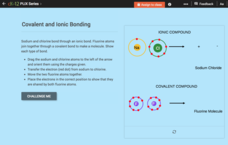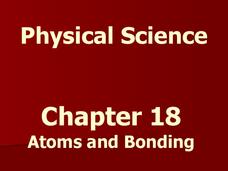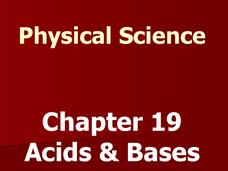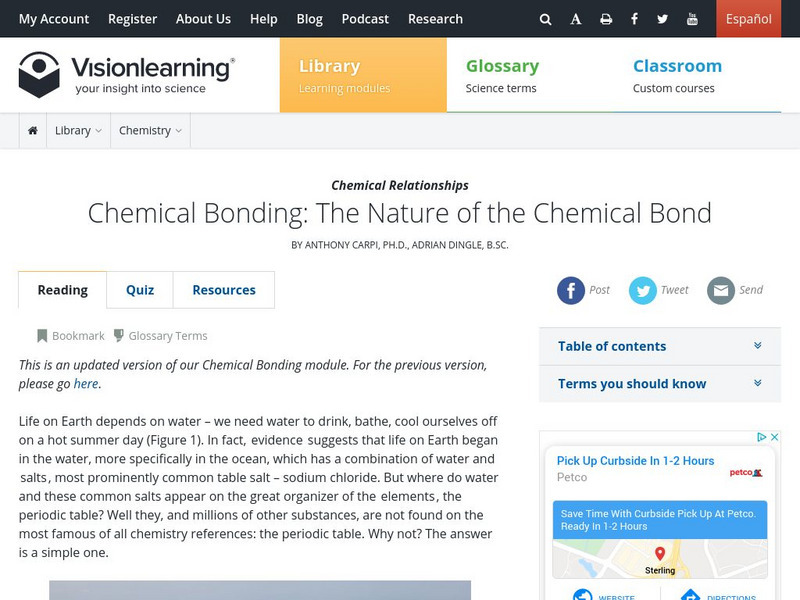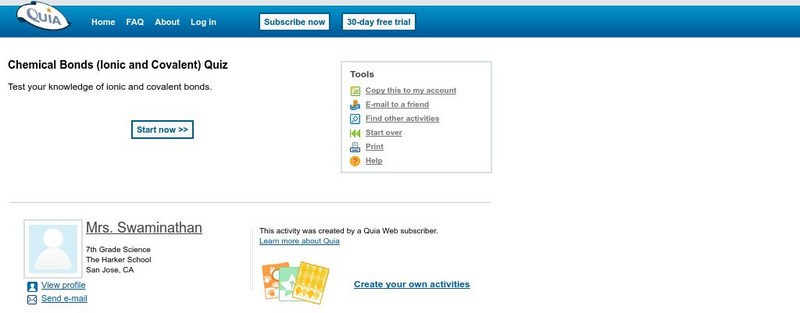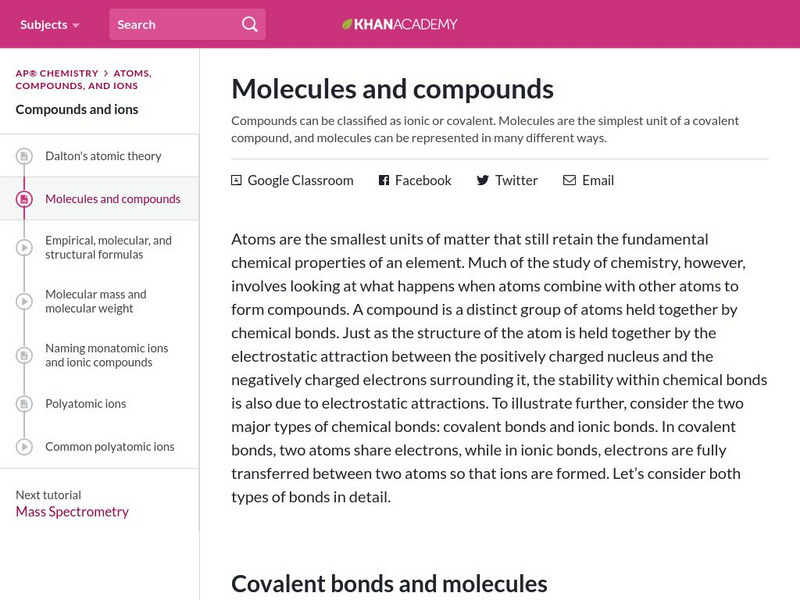CK-12 Foundation
Chemical Bonds: Covalent and Ionic Bonding
Get back to bonding basics. Science scholars get a chance to show what they know using a simple interactive. Pupils create models of covalent and ionic bonds before answering questions about each interaction. The resource includes a...
Spark Notes
Review of Chemical Bonding: Review Test
This is an online exercise in which chemistry learners answer a series of multiple choice questions about bonding. Topics addressed include ionic and covalent bonds, electronegativity, ions, valence electrons, resonance structure, and...
Mr. E. Science
Atoms and Bonding
I don't trust atoms because they make up everything. Budding scientists learn about famous scientists connected to atomic models, chemical, ionic, and hydrogen bonds. The presentation also presents how to count atoms...
Royal Society of Chemistry
Some A-level Reagents
Learning names and formulas can be a daunting task for young chemists, so support their study with interactive puzzles! First, users match each formula with its correct name. Then, individuals use them to complete three logic games.
American Chemical Society
Development of Baking Powder
Did you know baking powder can be used to treat acne, whiten teeth, and make sugar cookies? The lesson plan on the development of baking powder is ready-to-go with no preparation required. Through readings, pupils answer questions,...
Mr. E. Science
Acids, Bases and Solutions
If you are not part of the solution, then you are part of the precipitate. The presentation covers solutions, suspensions, solubility, dissociation, and acid/base reactions. This is the 19th lesson in a series of 26.
American Chemical Society
Middle School Chemistry: Energy Levels, Electrons, Ionic Bonding
Students discover that ionic bonding occurs when electrons are transferred from one atom to the other and not shared as in covalent bonding.
Vision Learning
Visionlearning: Chemistry: The Nature of the Chemical Bond
This site talks about ionic, polar covalent, and non-polar covalent bonding.
Concord Consortium
Concord Consortium: Stem Resources: Chemical Bonds
By working through this web-based activity, students differentiate between ionic, non-polar covalent, and polar covalent bonds. Specifically, distinctions are made between bonding types based on orbital shapes and electronegativity...
American Chemical Society
Middle School Chemistry: Represent Bonding With Lewis Dot Diagrams
Students draw and interpret Lewis dot diagrams for individual atoms and both covalent and ionic compounds.
Texas Education Agency
Texas Gateway: Ionic and Covalent Bonding
In this tutorial, students learn about ionic and covalent bonds and predict which elements will form which type of bond. Includes interactive exercises as well as videos.
American Chemical Society
Middle School Chemistry: Chapter 4: The Periodic Table and Bonding
Six middle school chemistry lessons about the periodic table and bonding complete with handouts and animations.
Quia
Quia: Chemical Bonds (Ionic and Covalent) Quiz
This is 21-question multiple choice quiz over chemical bonds was written for a 7th-grade science class.
Quia
Quia: Reading Detective: Main Idea
A 20 question quiz testing knowledge of ionic and covalent bonding.
Khan Academy
Khan Academy: Molecules and Compounds
Article defines and explains compounds which are either ionic or covalent and molecules which are the simplest unit of a covalent compound. Molecules can be represented in many different ways.
Ducksters
Ducksters: Chemistry for Kids: Chemical Bonding
Study chemical bonding in chemistry including atoms, valence electrons, ionic and covalent bonding, and how molecules are formed on this site!
CK-12 Foundation
Ck 12: Chemistry for High School
This digital textbook covers core chemistry concepts and includes interactive features, real-world examples, and videos.
